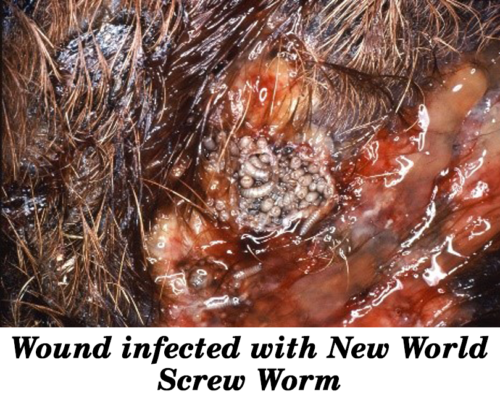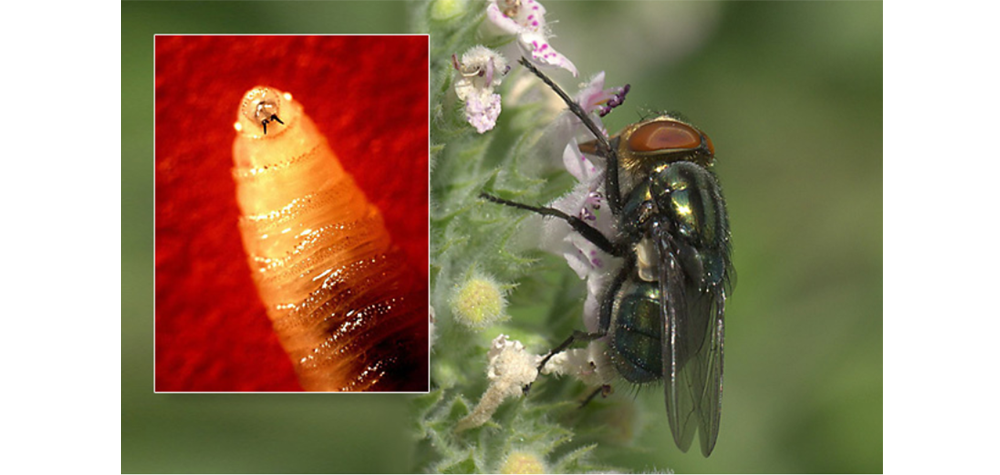Photo: New Word Screwworm larva and fly
by Kristen Ku
BELIZE CITY, Fri. July 26, 2024
The resurgence of the New World Screw Worm (NWS) in Central America is posing a major threat to Belize’s agriculture and livestock industries. This destructive pest, known for causing severe damage to livestock, has been detected in Panama, Costa Rica, and now Nicaragua.
The NWS (Cochliomyia hominivorax) is a parasitic fly whose larvae feed on the living tissue of warm-blooded animals, including humans. This pest can cause severe wounds and, if left untreated, can lead to the death of affected animals. Historically, screwworm infestations have devastated livestock populations, leading to great economic losses.

Belize became free from the NWS in 1992 and has maintained this status since then; but with its growing cattle industry valued at $90 million, it is particularly vulnerable. The country’s cattle trade with Mexico in particular, is at risk, as it not only supports local livelihoods, but also contributes significantly to the country’s GDP through exports.
An outbreak of New World Screw Worm could lead to strict quarantine measures, increased costs for treatments, and potential trade restrictions, all of which would strain an already vulnerable sector.
Belize’s Minister of Agriculture, Hon. Jose Abelardo Mai, has urged immediate action from international organizations to contain the spread of screwworms. During the recent 44th Regular Meeting of the Executive Committee for the Inter-American Institute for Cooperation on Agriculture (IICA) in Costa Rica, Minister Mai highlighted the urgent need for intervention from both IICA and the Regional International Organization for Plant Protection and Animal Health (OIRSA).
Amandala reached out to the Technical Director of Animal Health at the Belize Agricultural Health Authority (BAHA), but was informed that she was traveling. We also reached out to the Director of Public Health and Wellness, Dr. Melissa Diaz-Musa, but up to press time we were unable to secure an interview.
BAHA is taking several measures to keep Belize free from the NWS. They are monitoring the regional zoo-sanitary situation, educating the public about the risks of the pest and the dangers of illegal animal imports, and conducting surveillance on animals with wounds. Additionally, BAHA is inspecting imported animals at all entry points, and providing training to technical officers, private veterinarians, Ministry of Agriculture livestock officers, association veterinarians, and other stakeholders. They are also participating in regional initiatives to address the issue.

